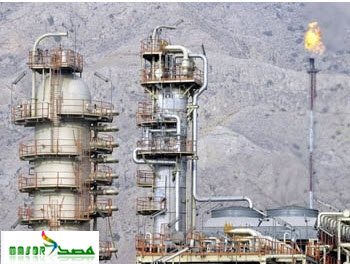 business & finance club - kuwait : : With the world's fourth-largest oil reserves and synonymous as an energy powerhouse, many would find it surprising to learn that Kuwait is presently a net importer of gas. Therefore the discovery and development of its domestic gas resources are of vital importance to the country as it looks to not only secure and expand its foreign account balance, but also fulfil its growing domestic utility needs with a cleaner and more efficient alternative to oil.
Kuwait is estimated to possess 8% of global oil reserves and presently produces 2.78m barrels per day (bpd), accounting for roughly 3.5% of global production, according to the "BP Statistical Review of World Energy June 2009." While it is ranked 18th in gas reserves, it currently extracts a very modest 140m cu feet per day (cfdp), a figure that is not sufficient to meet even its local requirements.
Kuwait is also one of the world's largest per-capita consumers of electricity, especially in summer months when demand soars. It is expected that during the peak demand period of April 1 to late October of this year, Kuwait will be importing liquefied natural gas from global companies at a rate of 500,000 cfpd.
In 2005, an estimated 35trn cf of non-associated gas was discovered in the country's northern fields. But to date, little extraction has taken place. The field contains gas with high concentrations of toxic and corrosive hydrogen sulphur, and are considered technically challenging to manage. In February, the country reached a deal with Royal Dutch Shell, valued at an estimated $700m that will entail the energy giant providing expertise and technology to help tap the complex reservoirs. The five-year "technical services contract" could ultimately see the output from several northern gas fields reach 1bn cfpd.
The move is considered a landmark deal in that not only will it provide a significant boost to the country's domestic utilities capacity, but it also signals a move towards greater collaboration and participation of international oil companies (IOCs) in the country's upstream activity. Sara Akbar, the managing director of Kuwait Energy, an independent oil and gas company operating across the region, told OBG, "The Shell deal is a major turnaround for Kuwait, and should pave the way for IOCs to do more work in the country."
With operating oil fields maturing and newly discovered oil and gas reserves requiring enhanced recovery techniques, Kuwait is considered to be behind its production potential, partly as a result of a clause that bars foreign ownership of hydrocarbon resources.
Saedeldeen A Akashah, the chairman of Kuwait Catalyst Company, a solutions provider to the regional refining industry, told OBG, "Oil for Kuwait is a symbol of sovereignty and the country is reluctant to relinquish control. It's a very sensitive issue as in the constitution it states openly that oil belongs to the Kuwaiti people. The government needs to figure out how to strike the right balance between ownership and competitiveness."
Industry players commend the decision to involve Shell in the northern gas fields, pointing to the advances made in other Gulf states' gas output through an open engagement with international companies. Walid K Al Hashash, chairman of Aref Energy Holding Company, told OBG, "Qatar's success in gas, and more recently Saudi Arabia's, came from their national oil companies realising they cannot produce gas without outside help and expertise. Kuwait Petroleum Company (KPC) has built up the know-how over the years to deal with oil, but gas and heavy oil is new to them. So the Shell deal is a good move and hopefully we'll see similar agreements in gas."
At present, there has been no indication of the new gas capacity that could come on-line being allocated to exports. And instead, it will most likely all be consumed domestically for electricity generation, water desalination and as feedstock to the country's industrial sector - in particular, the petrochemicals sector.
Ahmed Mouti, the chairman and managing director for Shell Kuwait, told OBG, "If more gas is produced domestically, not only will this reduce the need for costly imports required to meet local electricity demand, but it can help grow the local petrochemicals industry, which will serve as a critical diversification effort for the country by providing a value-added export revenue stream."
With oil revenues accounting for nearly 90% of the national treasury, many point to the advancement of the petrochemicals sector as a logical and viable means for the country to increase its industrial base and diversify its dependence on oil exports for future income generation |